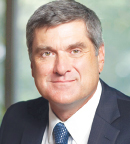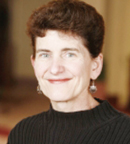Memorial Sloan Kettering Cancer Center (MSK) has named three investigators as the recipients of this year’s Paul Marks Prize for Cancer Research. The award recognizes scientists for their accomplishments in the area of cancer research. The winners for 2019 are Nathanael S. Gray, PhD; Joshua Mendell, MD, PhD; and Christopher Vakoc, MD, PhD. MSK President and Chief Executive Officer, Craig B. Thompson, MD, said in a statement: “The body of research represented by this year’s winners touches on three different but equally important areas of cancer research. Each of the recipients is conducting investigations that will have a major impact on cancer care in the years to come.”

(From left) Dr. Gray, Dr. Mendell, and Dr. Vakoc are the three recipients of the 2019 Paul Marks Prize for Cancer Research.
Each recipient will receive a medal and an award of $50,000 and will speak about their research at a scientific symposium at MSK on December 5.
Nathanael S. Gray, PhD
Dr. Gray is the Nancy Lurie Marks Professor of Biological Chemistry and Molecular Pharmacology at Harvard Medical School and the Dana-Farber Cancer Institute. He also leads the Dana-Farber chemical biology program.
Dr. Gray’s research centers on drug development and medicinal chemistry related to targeted therapies for cancer. Most traditional targeted therapies block the activity of cancer-causing proteins. Dr. Gray’s lab is taking a different approach: finding ways to degrade these proteins.
“The analogy used with conventional targeted therapies is that the drug is a key, and the protein is a door that can be unlocked,” he says. “But what happens when you have a door with no keyhole and no combination? The only way you can get rid of the door is to blow it up. That’s the degradation approach.”
Four drugs that Dr. Gray has had a hand in developing have already been approved by the U.S. Food and Drug Administration or are currently in clinical trials. “We plan to continue working on targets that were once considered ‘undruggable’ by using this protein-degradation approach,” he said.
Joshua Mendell, MD, PhD
Dr. Mendell is Professor and Vice Chair of the Molecular Biology Department at UT Southwestern Medical Center in Dallas. He is also a Howard Hughes Medical Institute Investigator.
His lab studies noncoding RNAs, which lack the instructions for making proteins. Much of his research focuses on the class of small noncoding RNAs known as microRNAs. “MicroRNAs regulate messenger RNA molecules, which do encode proteins,” Dr. Mendell said. “Over the years, my lab has investigated how these small noncoding RNAs contribute to tumor formation and how they become dramatically reprogrammed in cancer cells.” One particularly important contribution from his lab was the discovery that MYC, a gene that’s overactive in many human cancers, promotes cancer in part by reprogramming microRNAs to favor tumor growth.
Not all microRNAs in cancer cells have the same function. Some act as oncogenes, whereas others are tumor suppressors. “We’re interested in finding therapies that change the activity of these microRNAs,” he explained. “For those that act as oncogenes, it could be beneficial to inhibit their activity. On the other hand, for those that act as tumor suppressors, we are working to restore their activity or increase their levels in cancer cells.”
Research in Dr. Mendell’s lab has expanded to include the study of other types of noncoding RNAs. “We want to understand why our genome is producing so many RNAs that do not encode proteins and what role they may have in diseases, including cancer,” he said.
Christopher Vakoc, MD, PhD
Dr. Vakoc is Professor at Cold Spring Harbor Laboratory in Cold Spring Harbor, New York. His research is focused on gene regulation. Specifically, he is determining how certain genes drive cancer growth and looking for ways to disable those genes. “The objective of our research is to figure out how we can use drugs to ‘turn off’ cancer-promoting genes as a way to eliminate tumors,” he said.
In his lab, Dr. Vakoc performs genetic screening with the gene-editing technique CRISPR to figure out which genes and proteins are most important for cancer. “We systematically subtract each one to learn which of them are vital for sustaining cell growth,” he said. “The idea is that if we find a protein that cancer cells are addicted to, we can look for a way to block it.”
Among his most important discoveries was identifying the protein ZFP64 as an essential factor in the growth of certain types of leukemia. His findings helped illustrate how this protein drives cancer growth and suggested new treatments.
Dr. Vakoc’s lab is currently studying cancer growth in several other kinds of cancer, including pancreatic cancer, lung cancer, and sarcoma. “A lot of our methods are universally applicable,” he said. “It’s been very illuminating for me to compare and contrast how solid tumors behave differently from blood cancers with respect to gene regulation. We’re using a variety of different approaches to develop methods for targeting these genes.”
The ‘Best of the Best’
A committee of members of the cancer research community, chaired by M. Celeste Simon, PhD, the Arthur H. Rubenstein MBBCh Professor in the Department of Cell and Developmental Biology at the University of Pennsylvania Perelman School of Medicine, selected the winners.

Craig B. Thompson, MD

M. Celeste Simon, PhD
“We had an outstanding group of nominees this year, making our selection of award recipients very challenging. These three young scientists are clearly the best of the best,” Dr. Simon said. “The selection committee unanimously felt that this year’s recipients have already significantly impacted the field of cancer research and will continue to play major leadership roles in the coming years.”
Since it was first presented in 2001, the biennial Paul Marks Prize for Cancer Research has recognized 31 scientists and awarded a total of more than $1 million in prize money. The award was created to honor Dr. Marks, President Emeritus of MSK, for his contributions as a scientist, teacher, and leader during the 19 years he headed the institution. ■

